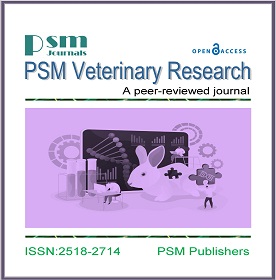Zinc, Selenium, and Vitamin E Combination Ameliorate Carbohydrate Metabolic Enzymes and Liver Antioxidant Activities in Diabetic Rats through Regulation of Glycogen Synthase Kinase 3 Beta and Pyruvate Kinase M2 Genes Expression
Micronutrients supplementation and carbohydrate metabolism in diabetic rats
Abstract
The ameliorative effects of micronutrients and multi-vitamins in decreasing diabetes complications along with their role in regulating carbohydrate metabolic enzymes and antioxidant status of the liver have become the focus of several studies. Consequently, the current study was conducted to evaluate the efficiency of zinc, selenium and vitamin E supplementation either separately or in combinations in the regulation of carbohydrate metabolism, antioxidant status and oxidative stress in streptozotocin-induced diabetes in rats. For this purpose, a total of 48 male Wister albino rats (200-250 gm each) were divided equally into six groups: (Group I) controlled rat with a normal diet, (Group II) diabetic rats, (Group III) diabetic rats supplemented with vitamin E, (Group IV) diabetic rats supplemented with zinc, (Group V) diabetic rats supplemented with selenium and (Group VI) diabetic rats supplemented with a combination of vitamin E, zinc and selenium. After one month of diabetic induction, blood samples were collected to measure insulin level while liver and leg tissue samples were collected to evaluate oxidative stress markers (malondialdehyde and nitric oxide), antioxidant markers (superoxide dismutase and glutathione peroxidase), as well as SYBR Green real-time PCR for pyruvate kinase m2 (Pkm2), and glycogen synthase kinase 3 beta (GSk 3beta) genes expression. The results revealed that supplementation of vitamin E, zinc, and selenium in combination significantly decreased MDA level and PKm2 expression with a marked increase in insulin level, antioxidant markers (SOD and GPx), and GSk3 beta gene expression when compared with diabetic group. These findings highlighted the potential hypoglycemic effects of vitamin E, zinc, and selenium in combination and their role in regulating carbohydrate metabolism through regulation of Pkm2, GSk3 beta gene expression, and in ameliorating the antioxidant status of liver tissues.
Downloads
Downloads
Published
How to Cite
Issue
Section
License
Copyright (c) 2020 PSM

This work is licensed under a Creative Commons Attribution-NonCommercial 4.0 International License.







